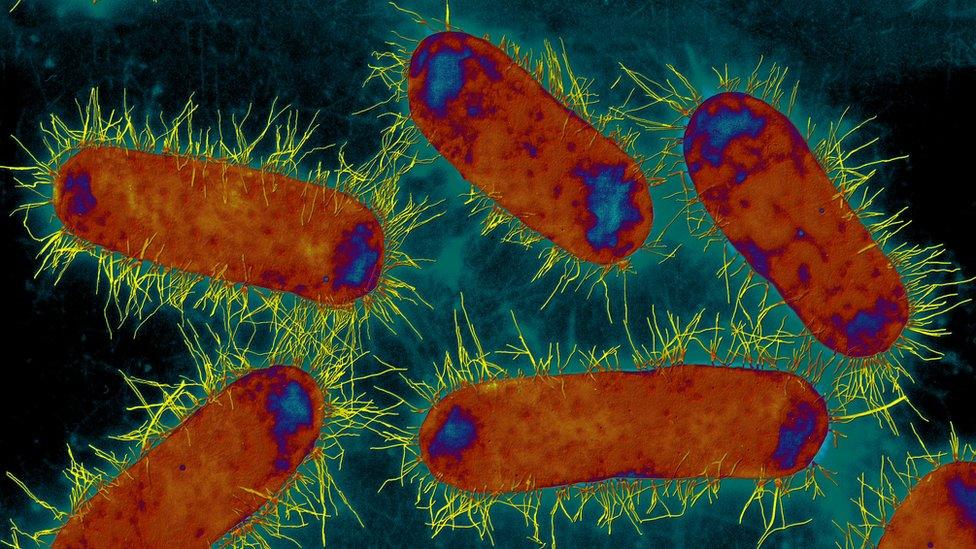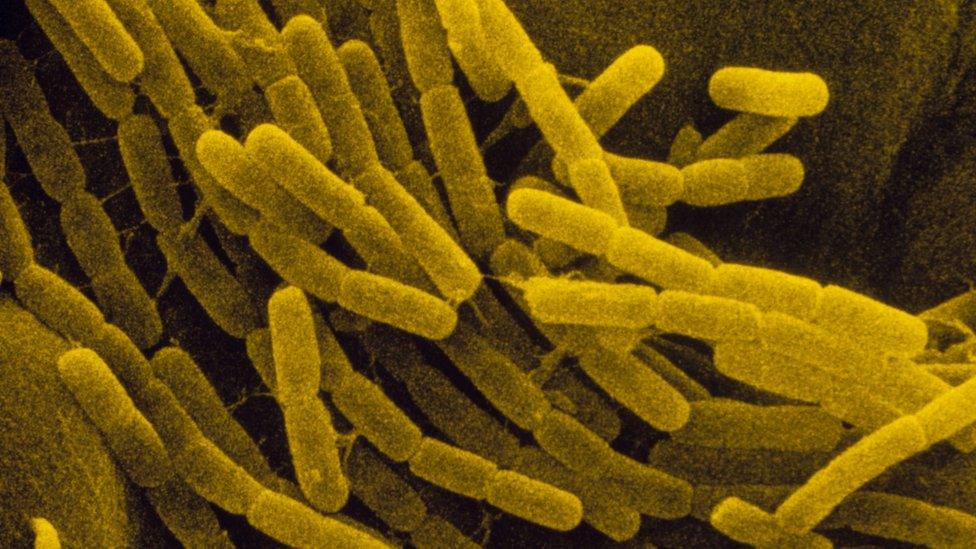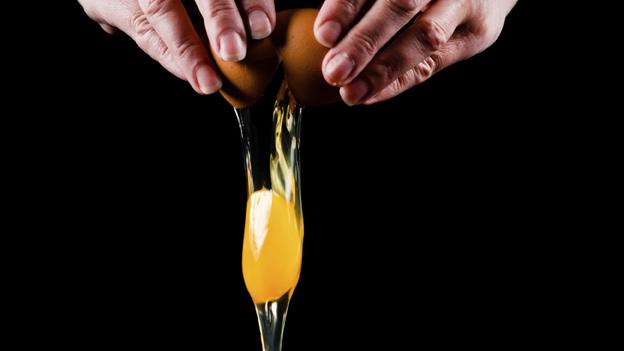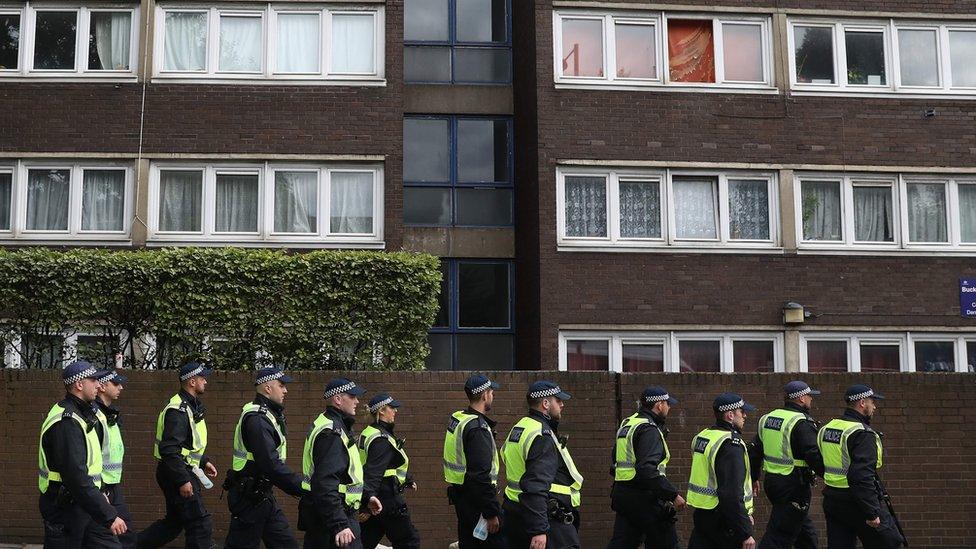Notting Hill Carnival 2018: Hygiene failings at six food stalls
- Published

Three food stalls were found to have "very high" readings of bacteria which can cause diarrhoea
Six food stalls at this year's Notting Hill Carnival were found to have "unsatisfactory" food hygiene standards, a council report has said.
Two samples showed "very high" readings for E. coli, and another had a "very high" reading for bacillus cereus, both of which can cause diarrhoea.
Food hygiene experts are set to recommend banning three stalls from future carnivals.
The event's organisers Notting Hill Carnival Limited declined to comment.
One million people attended the two-day festival this year, which featured 283 licensed food sellers.
Council inspectors visited 250 stalls and gave out 44 warnings, down on the previous year's 71.

One million people attended the carnival over the bank holiday weekend
Inspectors took samples from seven stalls which had poor food hygiene and sent them for microbiological tests, according to a report, external for a Kensington and Chelsea council's scrutiny committee, the Local Democracy Reporting Service said.
They said six results which came back from showed unsatisfactory hygiene, the report said.
The results were a "deterioration on previous years", according to a second report, external to the committee.
Inspectors recommend that the three stalls with the worst results should be turned down if they want to trade at future carnivals.
The council, which funds and regulates the event, said it had a "large team [...] dedicated to making sure the food served over the weekend is stored, prepared and served the right way".

How dangerous are E. coli and bacillus cereus?

E. coli is a type of bacteria present in the gut of humans and animals
It can be passed on through raw and undercooked meats
Most strains are harmless - but some can cause cramps and diarrhoea, others severe illness, some can also be fatal
Internal organs, like the liver and kidneys, are affected and can start to shut down

Bacillus cereus is a type of bacterium which comes from food, especially rice and soup and food which has been prepared ahead of time and been stored at room temperature
It can cause nausea, vomiting, fever and diarrhoea
The symptoms may start one to six hours after eating contaminated food
It is not passed from one person to another and symptoms don't usually last longer than a day

- Published2 December 2013

- Published28 August 2018

- Published27 August 2018

- Published27 August 2018

- Published26 August 2018
